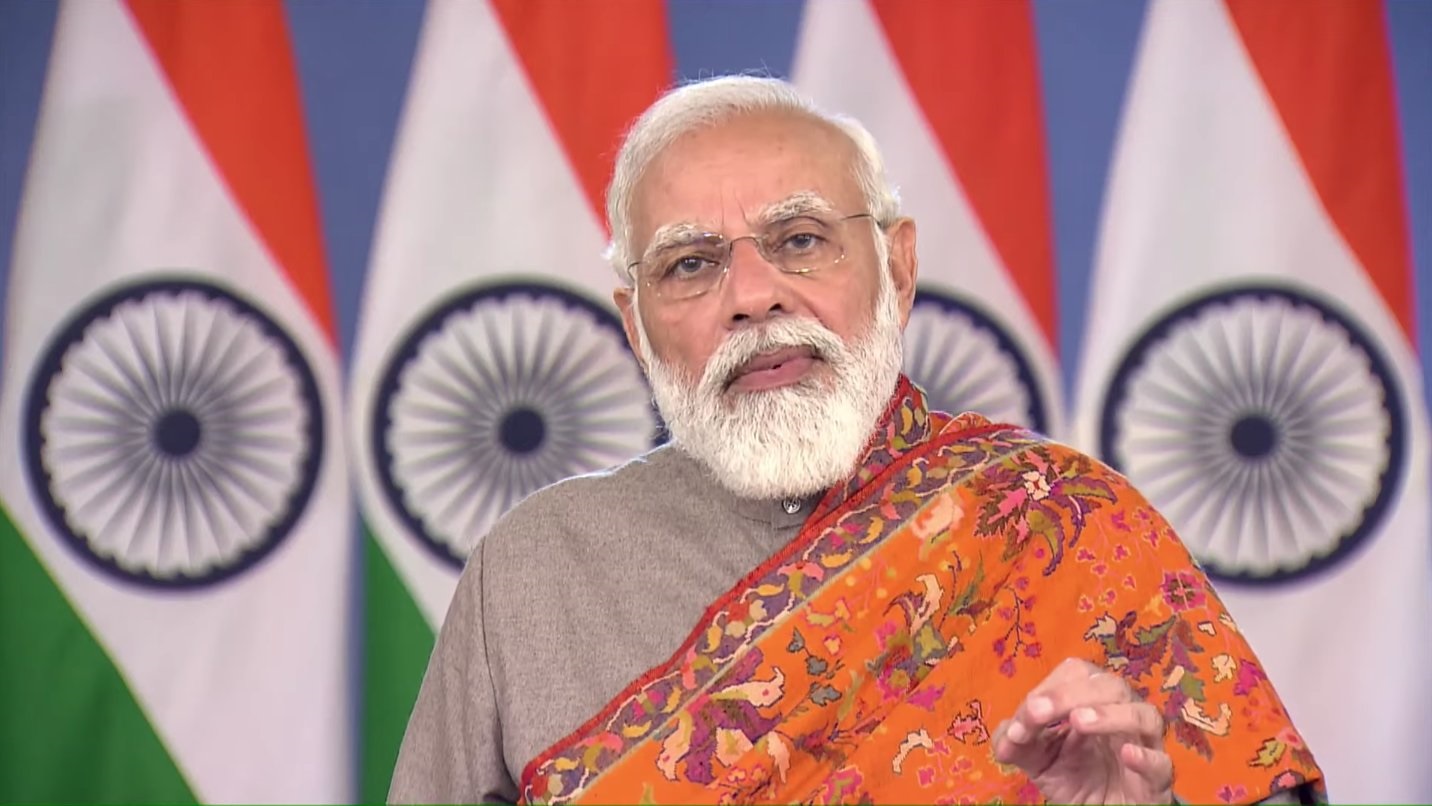JAMMU: With Jammu and Kashmir being under the direct rule of the Central government since 2018 and Union Home Minister Amit Shah giving repeated assurances to hold elections in Union Territory soon after the delimitation commission’s report, all eyes are on Prime Minister Narendra Modi’s visit to the city on April 24.
PM Modi will be addressing a huge rally in Samba near Jammu on the occasion of Panchayati Raj Day. Thousands of panchayat members are expected to attend the rally.
Assembly elections are likely to be held in Jammu and Kashmir later this year. The delimitation commission, to redraw electrical map of J&K, will submit its report anytime this month and the process to hold elections may start soon after the report is submitted.
Political parties say they expect the prime minister to talk about restoration of the statehood of Jammu and Kashmir and hold elections at the earliest.
April 24 marks the Panchayati Raj Diwas, the day when the Constitution (73rd Amendment) Act, 1992 came into force in 1993. Last week, J&K Lieutenant Governor Manoj Sinha had met Rural Development Minister Giriraj Singh, who also holds the Panchayati Raj charge.
Last year, in a move that was seen extension of an olive branch, PM Modi had invited mainstream leaders from the UT, many of whom had been detained after the abrogation of Article 370, to his residence in Delhi and held a long meeting with them.
Apart from promising to hold elections soon, the PM had told the leaders that J&K’s statehood would be restored after the situation returns to normal.
It was for the first time that three-tier Panchayati Raj institutions have been established in Jammu and Kashmir. In the annual budget of the UT for the financial year of 2022-23 presented by Finance Minister Nirmala Sitharaman in Parliament on March 14, a hefty funding provision has been kept for both urban and rural local bodies.
This will be the first visit of the prime minister to Jammu and Kashmir other than border areas post abrogation of special status of J&K and bifurcation of erstwhile State into two Union Territories of J&K and Ladakh. However, he had celebrated Diwali with Army soldiers on October 27, 2019 at Rajouri and November 3, 2021 at Nowshera sector in Jammu division. As a State, Jammu and Kashmir hosted him on February 3, 2019 for last time when he had visited all three regions including Jammu, Srinagar and Ladakh and launched projects worth thousands of crores.
Modi is known to have toured Kashmir in the thick of terrorism in 1990-94. According to the local BJP leaders, he visited all the valley’s six districts in 1993 when most of the mainstream politicians had resigned under the fear and diktat of guns. Former Chief Minister Farooq Abdullah had escaped to London. Several of his ex-ministers and MLAs had been killed by terrorists and others with exceptions like Aga Syed Mehmood, Mohammad Shafi Bhat, and Mohammad Sayeed Akhoon had migrated and settled in Jammu.
While the authorities are tight-lipped on the PM’s Kashmir itinerary, Palli Panchayat in Jammu’s Samba district is being decorated for a massive public rally. The BJP leaders insist that one lakh people would attend Modi’s first public meeting in J&K after the creation of the Union Territory.
Officials in Srinagar are making preparations to mobilise a large number of the members and heads of Panchayati Raj Institutions and Urban Local Bodies for participation in the prime minister’s second public meeting at Sher-e-Kashmir International Conference Centre (SKICC). His attendance at a sports event inside a stadium is also on cards.
“Now there are credible reports that Delimitation Commission will submit final report by the end of this month we expect that PM will roll out the conduct of Assembly elections in J&K,” a senior National Conference leader told The New Indian.
“We have been promised elections after delimitation and statehood after polls.”
The political parties in Jammu and Kashmir are consistently demanding the restoration of statehood before the assembly polls. However, the Government of India (GoI) has maintained that the statehood would only be restored after the delimitation of constituencies followed by assembly elections.
Similar are the reactions from J&K Apni Party, Peoples Conference, and other political parties. They say that people are in dire need of political representatives.
“Our party’s demand has always been to restore statehood. However, if GoI won’t meet our demands, it won’t stop us from taking part in the assembly polls even if we have to contest it under UT,” said a senior JKPCC leader.
In February, Union Home Minister Amit Shah said that Assembly elections in Jammu and Kashmir will be held six to eight months after the end of the delimitation process in the Union Territory.
“The delimitation exercise is about to get over,” Shah told the channel in an interview. “After that, within six-eight months, the elections will be held. There is no confusion.”
The term of the Delimitation Commission, headed by former Supreme Court judge Ranjana Desai, is slated to end on May 6.
On February 6, it submitted a draft report, in which it proposed the creation of seven new Assembly segments and the redrawing of the boundaries of some others. Six of the new constituencies are proposed to be in the Jammu, while one is in Kashmir.
With these changes, Jammu and Kashmir will have a total of 90 Assembly seats. The number of seats in the Jammu region will increase from 37 to 43, while in the Kashmir region they will increase from 46 to 47. Another 24 seats will be reserved for Pakistan-occupied Kashmir.










